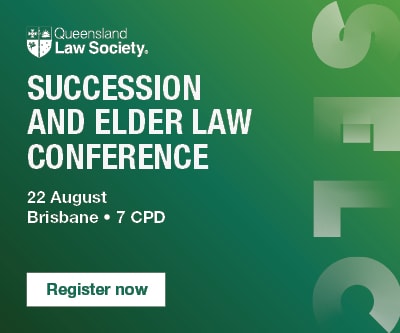Law practices may at some time be affected by floods or extreme weather conditions.
Queensland Law Society offers the following guidance where client documents or files have been damaged, destroyed or lost:
- You should inform your insurer Lexon Insurance of your situation and of the possibility of claims arising from this – www.lexoninsurance.com.au or telephone 07 3007 1266. (You might also consider if you have any coverage with your buildings or contents policies).
- All reasonable attempts should be made to inform the relevant (former) clients of the position where you have a current matter or where you have been holding security documents for those clients.
- All client documents should be secured as far as possible and as soon as possible (against the usual risks of breach of confidentiality, theft, fire, flood, vermin, etc).
- If the documents have been completely destroyed (so that no information is discernible) they may be disposed of.
- If the documents pose a health risk they may be disposed of.
- If the documents have been only partially destroyed or damaged (and they do not pose a health risk) they should be retained until such time as they may be copied (to preserve any limited information they contain) or replaced. If they are, or may be, evidence in a case they should not be destroyed.
It may be appropriate to take, or to offer to take, various steps as follows (the cost of this may not be chargeable to the clients):
- Wills, codicils, (enduring) powers of attorney – preparing and arranging for execution of replacement versions of these using any available (electronic or draft) copies or by taking fresh instructions from the clients if necessary
- Land title documents - obtaining replacement Certificates of Title or Leasehold Documents from the Land Titles Office
- Grants of Probate and Administration – considering whether an application is necessary for replacement documents
- Current client files – reconstructing these so far as possible from your own (electronic) sources, from the clients’ own records, from any other parties to the transaction, the court and any other possible sources, bearing in mind your obligations to act in the clients’ best interests and complete the matter in a reasonably timely manner.
- Archived client files – it may not be necessary to take any steps unless you are contacted by the former client requesting the whole or some part of the file or information from it. In some circumstances or types of matters it may be advisable to obtain documents now from other sources in case you later receive a request for these from the former client e.g. court orders in matters if it is known that the court only keeps records for a certain period and you have a policy of keeping files in that type of matter for a longer period.
- When disposing of damaged documents, if any details in the documents are still discernible, you should ensure this is done securely so as to preserve client confidentiality.
- You should keep photographic evidence of the damage to your premises, in particular the rooms where documents were stored, as well as damaged or destroyed files.
It is hoped that all practitioners will provide any necessary assistance and forbearance to their professional colleagues when such practices are affected by flooding or extreme weather conditions.


